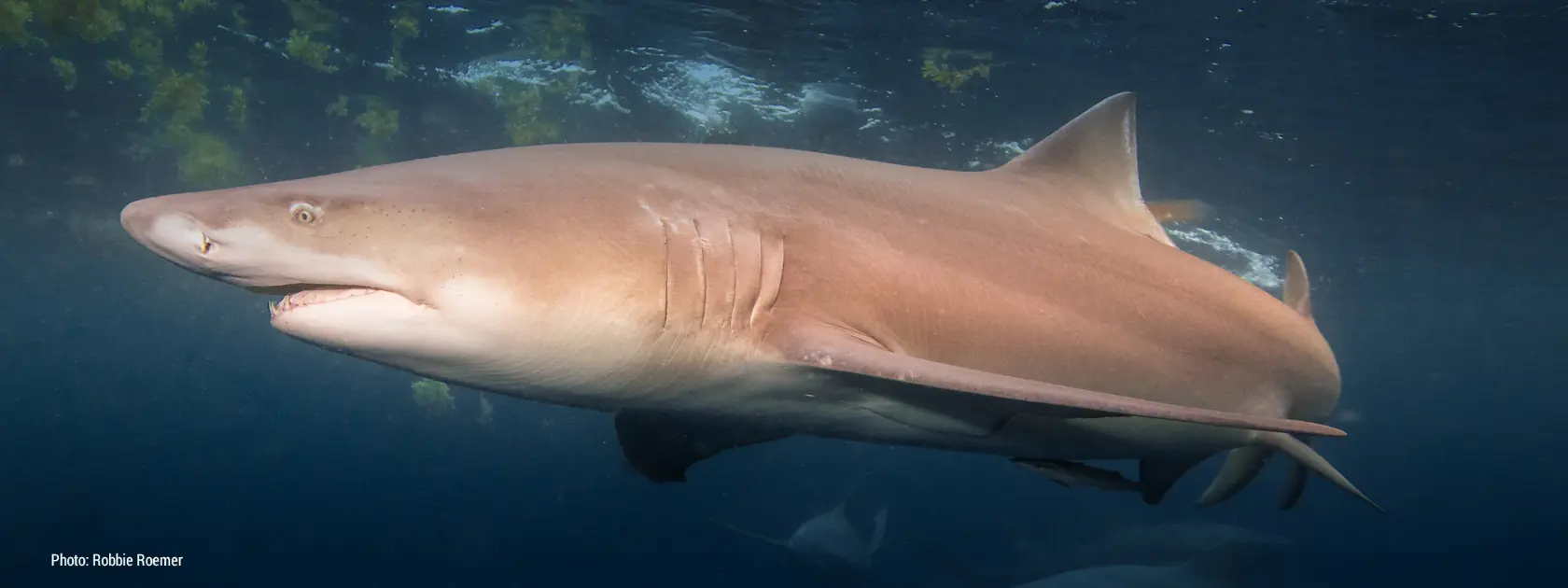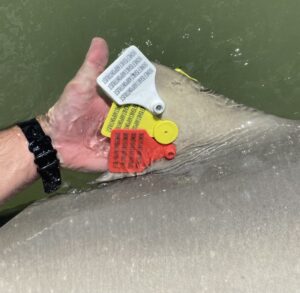
Have you experienced interactions during which a shark fully or partially consumed a hooked fish while you were fishing? This is known as shark depredation and it also involves incidents when fish are eaten by sharks after being released by anglers (post-release predation). Anglers in Florida have reported a substantial increase in encounters with sharks, including incidents of depredation and post-release predation, especially in the Florida Keys. Shark-angler interactions are not only frustrating – they are dangerous and may threaten the sustainability of flats fish species.
BTT’s Shark Depredation Project seeks to study the problem in the Keys and determine science-based mitigation recommendations for fisheries managers.
 Have you seen a shark with a BTT tag in the Florida Keys? If you encounter a shark with these tags while fishing in the Keys, please report it to BTT by emailing sharks@bonefishtarpontrust.org.
Have you seen a shark with a BTT tag in the Florida Keys? If you encounter a shark with these tags while fishing in the Keys, please report it to BTT by emailing sharks@bonefishtarpontrust.org.
Please include the tag colors, the type of interaction (such as: passing by, approaching your boat, or depredating), along with the location, date, time, and any other relevant details.
The order of the tag colors helps us identify the individual; for example, the shark in the photo is individual “white-yellow-red” (TOP-MIDDLE-BOTTOM).
 Conservation measures taken in the US over the past 20 years have resulted in some of the healthiest shark populations seen in several decades for some species. A consequence of this recovery has been the rapidly increasing interactions between sharks and fish caught by anglers.
Conservation measures taken in the US over the past 20 years have resulted in some of the healthiest shark populations seen in several decades for some species. A consequence of this recovery has been the rapidly increasing interactions between sharks and fish caught by anglers.
Over the past decade, Bonefish & Tarpon Trust has been at the forefront of this issue. BTT advocacy on Boca Grande Pass helped lead to state prohibitions on breakaway jigs, and depredation studies at Western Dry Rocks led to a seasonal no-fishing closure that is critical to the protection of spawning permit.
BTT’s Shark Depredation Project will study shark-angler interactions in the Florida Keys by location, season and fishing method. The results will help inform future management decisions, including ways to reduce shark-angler interactions and limit impacts to our valuable fishery. Insights gained through the survey, interviews, and field research will be published and made available to the public in 2025.
Questions? Please email sharks@bonefishtarpontrust.org
The SHARKED Act will establish a task force of fisheries managers and shark experts responsible for addressing shark depredation. This will be the first step in building our knowledge to improve management and mitigate depredation nationally. Write to your senator today to urge them to support this crucial bill.

Bonefish & Tarpon Trust
2937 SW 27th Avenue Suite 203
Miami, FL 33133